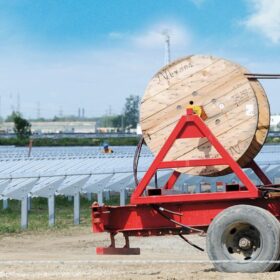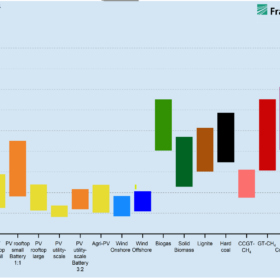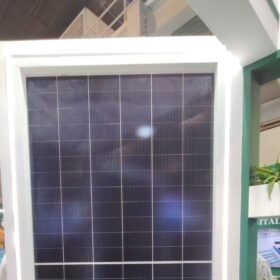New Zealand steps up approvals process for large-scale PV projects
Ten large-scale solar farms planned for New Zealand’s North and South islands are among 22 renewable energy projects with a combined capacity of 3 GW that have been listed for inclusion in the government’s “one-stop shop” fast-track approvals process.
Avada Group wants to build ingot-to-PV module, battery factory in India
Avaada will set up a wafer-to-module project to support the company’s existing PV module plant in Dadri. The factory will also manufacture next-generation batteries and electrolyzers.
Nexans offers low-carbon PV cables
The French cable manufacturer unveiled new low-carbon products for large-scale PV projects.
New IEA PVPS Handbook: A guide to proper solar resource data management
In its latest monthly column for pv magazine, IEA PVPS provides a comprehensive overview of the recently released fourth edition of the “Best Practices Handbook for the Collection and Use of Solar Resource Data”. The 530-page handbook, developed by IEA PVPS Task 16 in collaboration with NREL, elaborates on methods and models for accurately collecting solar data to plan and operate energy projects effectively.
Germany has solar LCOE ranging from €0.041/kWh to €0.144/kWh
A new report rom Fraunhofer ISE shows that the cost of PV systems in Germany is currently between €700/kW and €2,000/kW. The study also shows that the levelized cost of energy of solar-plus-storage spans from €0.06/kWh to €0.225/kWh.
Gambia launches tender for 50 MW solar-plus-storage project
Gambian utility Nawec is seeking proposals for a 50 MW PV facility planned to be deployed in Soma, south of the River Gambia. The project is part of a broader solar project eventually including unspecified battery storage capacity.
Reliance introduces bifacial heterojunction solar modules
The India-based module producer said its new panels have a power conversion efficiency of up to 23.1% and a temperature coefficient of -0.24% per C.
Italy’s regional governments approve 5.1 GW of utility-scale PV projects in January-September period
Italy’s regional governments approved 5.1 GW of solar in the first nine months of this year, with Sicily leading by approving around one-third of the total new capacity.
EWEC opens 1.5 GW solar tender in Abu Dhabi
Through the procurement exercise, the Emirates Water and Electricity Co. (EWEC ) is planning to build a giant solar farm in the Al Dhafra Region.
Key takeaways from Solar & Storage Live, UK
There’s a rejuvenated feeling in the UK solar market where a new government is making positive signals and considering key policy changes aimed at speeding up project commissioning. For storage, there’s still serious interest in utility-scale deployment with some significant projects in the pipeline.










